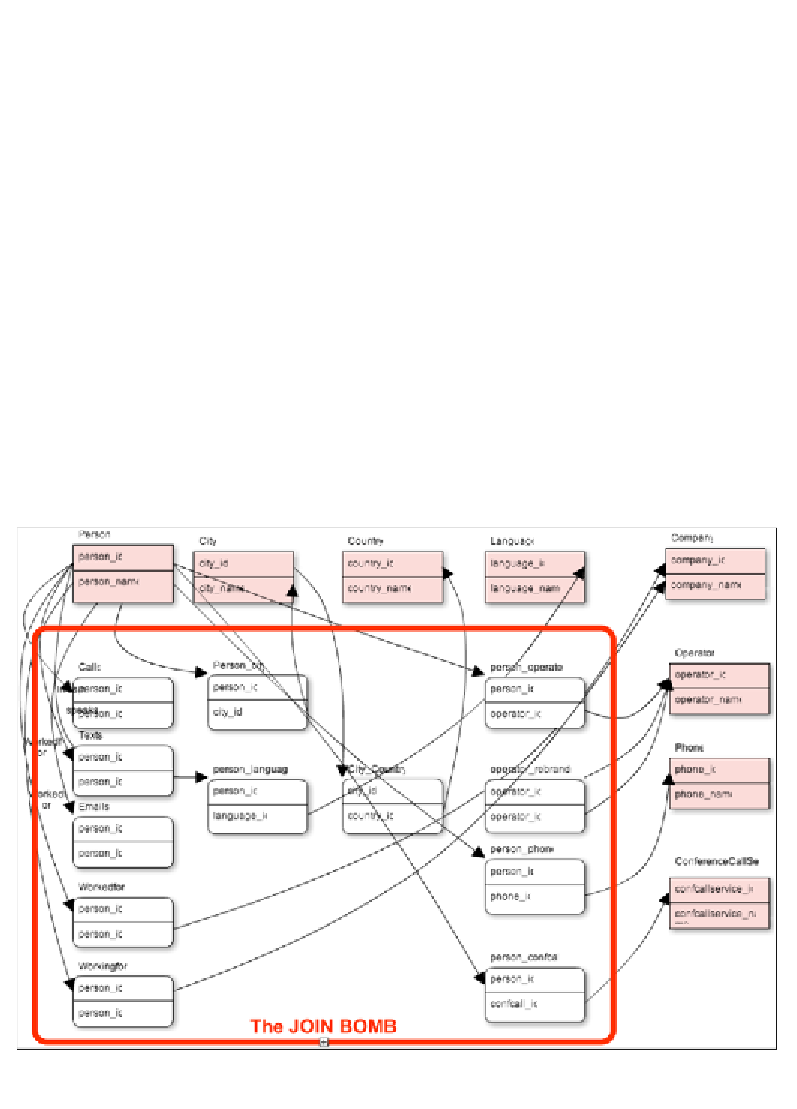Database Reference
In-Depth Information
I think it is safe to say that Relational Database Management Systems have served
our industry extremely well in the past 30 years, and will probably continue to do so
for a very long time to come. However, they also came with a couple of issues, which
are interesting to point out as they will (again) set the stage for another generation of
database management systems:
• Relational Database Systems suffer at scale. As the sets or tables of the
relational systems grow longer, the query response times of the relational
database systems generally get worse. Much worse. For most use cases,
this was and is not necessarily a problem, but, as we all know,
size does
matter
,andthisdeiciencycertainlydoesharmtherelationalmodel.
• Relational Databases are quite "anti-relational". As the domains of our
applications—and therefore, the relational models that represent those
domains—become more complex, relational systems really start to become
verydificulttoworkwith.Morespeciically,joinoperations,whereusers
would ask queries of the database that would pull data from a number of
differentsets/tables,areextremelycomplicatedandresourceintensivefor
the database management system. There is a true limit to the number of join
operations that such a system can effectively perform, before the
join bombs
go off and the system becomes very unresponsive.
Relational database schema with explosive join tables

